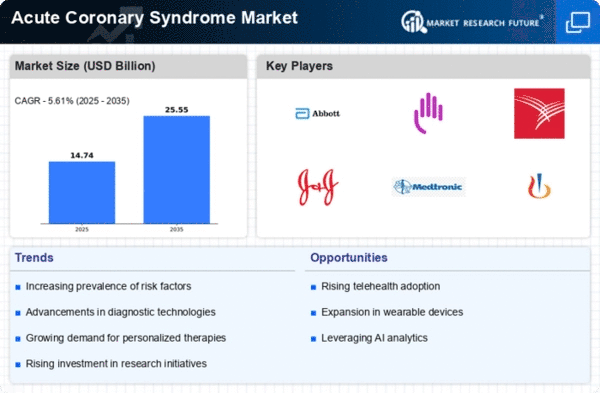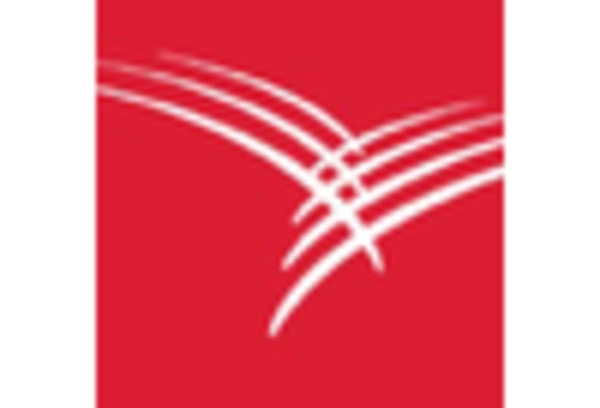Market Trends
Key Emerging Trends in the Acute Coronary Syndrome Market
The market trends in the acute coronary syndrome (ACS) sector reflect a dynamic landscape driven by advances in medical research, diagnostic technologies, and evolving treatment strategies. One interesting fact is that ACS is becoming increasingly common globally due to reasons such as lack of exercise, bad eating habits and an aged society. Increased knowledge coupled with increased efforts towards preventing cardiovascular disease aid in early diagnosis and intervention. It shows that there is urgent need for innovative interventions addressing the increasing burden of all sorts of issues making up ACS like unstable angina pectoris and myocardial infarction.
New generation diagnostic tools which are high-sensitive cardiac troponin assays as well as angiography and Computed Tomography Angiography have completely transformed the quick identification of Acute Coronary Syndrome (ACS) at its earliest manifestation. High sensitivity rapid Troponin tests enable health care providers to rapidly evaluate myocardial damage which assists in prompt decision making. This kind of improvement in diagnostics ensures quick identification resulting from early intervention in this condition.
The pharmaceutical industry has taken a lead role in regard to cardiovascular safety providing numerous drug options meant for ACS patients. Some common medications prescribed include antiplatelet agents, beta-blockers and statins among others for management of ACS hence reducing risks related to recurrent events. Ongoing studies are also being done on new antithrombotic agents, interventions to modulate inflammation and RNA-based therapies among others. Such a trend demonstrates that treatments continue to be fine-tuned so as to increase patient outcomes while at the same time reducing overall burdensome nature of ACS.
Personalized medicine plays an ever-greater part in shaping how ACS markets are run today. Customizing treatment based on specific traits including genetics or presence of other illnesses has become quite standard these days. Precision medicine intends on optimizing therapeutic benefits with minimal adverse effects hence making it more prospective for effective management of ACS.
Collaborations between healthcare practitioners, researchers and pharmaceutical industries have an effect on ACS service delivery. The heart teams comprise of cardiologists, interventionalists and other specialists who offer a complete approach to patient care. These partners also contribute to clinical trials and research initiatives aimed at increasing the understanding of ACS pathophysiology and options for treatment.
Telemedicine and digital health technologies are becoming integral components of ACS care, particularly in post-event follow-up and preventive care. These technologies facilitate remote consultations, patient monitoring, and the delivery of cardiac rehabilitation programs, enhancing accessibility for individuals recovering from ACS events. This trend aligns with the broader adoption of digital healthcare solutions and offers a convenient and patient-friendly approach to managing cardiovascular health.
There is an increased recognition of the role played by lifestyle interventions as well as preventive measures in ACS management. Lifestyle changes such as smoking cessation, healthy eating habits among others are being included in the overall treatment plan for patients with ACS due to its high importance in treating risk factors that are involved in its development like poor dieting, lack of exercise among others. This trend highlights a holistic as well as proactive way towards dealing with cardiovascular issues while avoiding repetitions.



















Leave a Comment